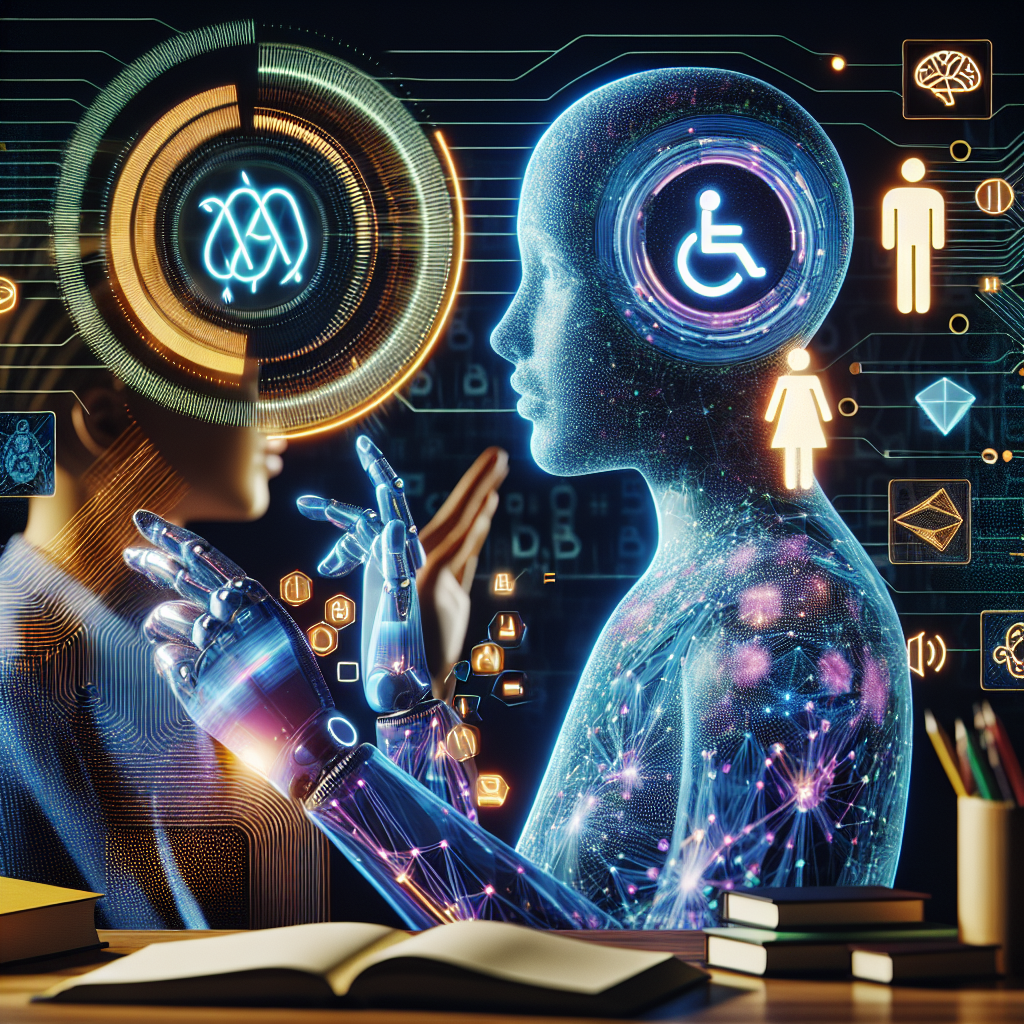Breaking Barriers: AI Tutors Tailored for d/Deaf and Hard-of-Hearing Learners

Breaking Barriers: AI Tutors Tailored for d/Deaf and Hard-of-Hearing Learners
Artificial Intelligence (AI) is knocking down barriers and opening new doors for learners around the world, but are we doing enough to ensure everyone can walk through those doors? For d/Deaf and Hard-of-Hearing (DHH) learners, traditional learning models often fail to address unique communication needs and cultural nuances. A recent study delves into how AI-powered tutoring systems, supercharged by large language models (LLMs), can deliver personalized learning experiences that resonate with DHH students. Let’s explore how AI can lend a helping hand—or, in this case, a signing hand—to make sure everyone gets an equal shot at education.
Personalized AI Learning: More Than Just Fancy Tech
Imagine having a tutor who understands not just what you need to learn, but also how you prefer to learn it. That’s exactly where AI tutors come into play. Built on the capabilities of LLMs, these AI tutors provide dynamic, interactive dialogues by simulating human conversations. They’re like having a wise friend who’s also an expert in the subject you’re studying, making learning both accessible and personalized.
But for DHH learners, interaction isn’t just about speech or text. Sign language often serves as their primary mode of communication, putting a premium on systems that can understand and respond in this context.
The Magic of Personas in AI Tutors
Personas: They’re not just for actors on stage. In AI, personas help algorithms emulate specific characteristics and communication styles. Think of them as digital dress-up clothes—giving the AI a chance to wear different hats according to the learner’s expectations. In the research at hand, AI tutors come with personas, each designed to cater to DHH learners: – Jamie: An AI tutor with deep roots in DHH education, hailing from Gallaudet University, a respected institution for DHH individuals. – Casey: A DHH access specialist bringing expertise and empathy to the table. – Alex: The versatile AI tutor with no specific background in DHH education but equipped to engage with diverse learners.
These personas aren’t just for fun—they’re a powerful tool in improving how DHH students perceive their AI tutors. Sure enough, DHH learners reported finding these AI tutors more human-like and trustworthy, thanks to their specialized knowledge and relatable communication styles.
Trust and Human-like Interaction: Why It Matters
Trust is currency in education. DHH students in the study showed a preference for AI tutors like Jamie and Casey, who could reference deeper cultural and community understanding. This wasn’t just about answering questions—it’s about understanding the context those questions arise from. Trust emerged not only from the quality of information but also from the AI’s ability to say, “I’m not sure, but let me find that out for you,” mimicking human sensibility.
Navigating the Nuances of DHH Learning
This study went beyond exploring whether AI can teach. It asked how AI should teach—tackling the nuanced demands of DHH learners. Participants expressed a longing for transparency about the AI tutors’ cultural and educational backgrounds, desiring personas that clearly fit into the DHH community. It’s all about authenticity and representation, after all.
And then there’s the issue of language. Many DHH learners are fluent in American Sign Language (ASL), which follows different grammatical rules than spoken or written English. Due to this divergence, more than just text responses are necessary—the AI needs to integrate and potentially translate ASL content, a complex endeavor that remains largely unexplored in current AI models.
The Future of Inclusive Learning
We’re facing a watershed moment where AI-powered tutors could revolutionize learning. Yet, for widespread adoption, tutors must be more than just talking textbooks.
- Customization: Allowing learners to adjust the AI’s personas to fit their specific learning styles and needs. This means acknowledging a range of communication preferences and adapting to individual nuances.
- Transparency: Clear connections to community and cultural knowledge boost credibility.
- Sign Language Support: Future models must embrace multilingual learning environments, flipping the script to support sign language as native speakers do.
This approach to inclusivity isn’t just a technical modification; it’s a paradigm shift. Training AI with a richer, more diverse dataset could counteract existing biases and reinforce these systems’ ability to adequately serve all learners.
Key Takeaways
-
AI Tutoring Technology: LLM-enabled AI tutors can offer a more relatable and trustworthy learning experience for DHH students by adopting personas grounded in cultural and community knowledge.
-
Personas Enhance Trust: Specialized personas that resonate with the learner’s background significantly increase trust and the perceived authenticity of AI systems.
-
Support for Multimodal Learning: Future AI systems should support sign language features, addressing both input methods and the style of output to ensure accessibility for DHH learners.
-
Call for Customization & Transparency: Learners desire the ability to customize AI personas and insights into the AI’s capacity and background, fostering a more tailored and effective learning experience.
-
Ethical AI Design: Building trustworthy AI must involve ethical considerations like credibility in role portrayal and attention to implicit biases in AI systems.
This transformation journey in AI education is just beginning. The road to truly inclusive AI tutors is paved with empathy, innovation, and a willingness to adapt on both the technological and human fronts. So next time you chat with an AI, remember—it might just be learning from you as much as you are from it!
If you are looking to improve your prompting skills and haven’t already, check out our free Advanced Prompt Engineering course.
This blog post is based on the research article “LLM-Powered AI Tutors with Personas for d/Deaf and Hard-of-Hearing Online Learners” by Authors: Haocong Cheng, Si Chen, Christopher Perdriau, Yun Huang. You can find the original article here.




